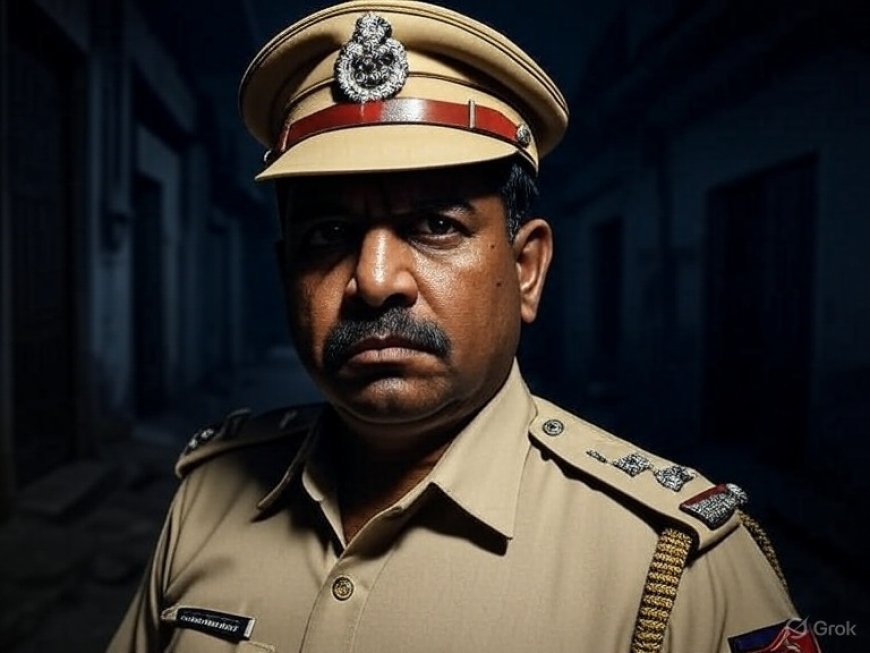Unmasking Police Culture in India: 2025 Report Reveals Deep-Rooted Violence, Torture, and Political Bias in Law Enforcement
The 2025 Status of Policing in India Report reveals deep-rooted violence, custodial torture, and political bias in law enforcement practices. Read key insights and expert reactions.

Introduction
The 2025 Status of Policing in India Report (SPIR) has reignited a vital debate around law enforcement practices, accountability, and ethics. Published by Commonwealth Human Rights Initiative (CHRI) and the Lokniti programme at CSDS, the report offers a rare, data-driven insight into how deeply systemic violence, custodial torture, and political favoritism have embedded themselves in police culture across the country.
The findings are unsettling—and yet, they are essential for pushing reforms that matter. This article explores key takeaways from the 2025 SPIR, highlights expert reactions, and connects the dots between policy failure, institutional silence, and human rights violations.
Violence and Torture: Still Common Tools of Policing
Despite legal safeguards, police brutality remains a central concern. The 2025 report reveals that over 70% of surveyed police personnel justified the use of violence during interrogations, and an alarming 42% believed torture is necessary to extract confessions.
This flies in the face of the Supreme Court's 2023 directive demanding zero tolerance toward custodial deaths and torture. Yet, implementation has remained paper-deep. Activists point to the low conviction rates in custodial death cases—less than 2%—as proof of institutional impunity.
“Torture is not just a method; it’s a mindset. It reflects systemic decay,” said Devika Prasad, Senior Advisor, Police Reforms, CHRI.
Political Bias: Policing Loyalty, Not Law
The SPIR 2025 uncovers troubling intersections between police functioning and political bias. More than half of the respondents admitted feeling pressure to act in favor of ruling political parties. This includes selective FIR filings, unlawful detentions during protests, and leniency toward supporters of those in power.
The report highlights several instances where law enforcement turned into a political tool. For instance, during state elections, multiple opposition candidates were detained without warrants under the guise of "law and order" maintenance. These actions are directly counter to constitutional norms.
A recent Human Rights Watch analysis shows how such partiality not only erodes public trust but also distorts democratic processes.
Gender and Caste Biases: Structural and Pervasive
The SPIR 2025 also delves into how intersectional discrimination—based on caste, gender, and religion—manifests within police forces. Dalits, Adivasis, and Muslims continue to be overrepresented among those who face police violence.
-
Over 65% of lower-rank officers said they believed “some castes are more criminal by nature.”
-
A majority of women officers surveyed reported harassment, lack of promotions, and exclusion from decision-making roles.
Such biases are not only morally indefensible but also violate the Guidelines on Police Reforms by the Supreme Court.
Public Trust: A Nation Divided
Public perception of the police is equally fractured. While 61% of urban respondents expressed "moderate to high" trust in police, only 33% of rural participants shared this view. Trust levels were lowest among marginalized communities, particularly in states with a history of communal tensions and custodial deaths.
According to a recent Carnegie India study on Law and Governance, rebuilding trust will require not just legal reforms but a complete re-engineering of training, recruitment, and oversight systems.
Accountability Remains Toothless
Despite numerous committees—like the National Police Commission—having made progressive recommendations, implementation remains negligible.
The 2025 report states:
-
Only 14% of states have set up functional Police Complaints Authorities.
-
Internal disciplinary mechanisms are outdated, often delaying justice for months or even years.
-
Whistleblowers within the police system still lack credible protection.
These gaps allow a culture of silence, denial, and retaliation to thrive.
The Path Forward: What Needs Urgent Attention
-
Independent Oversight: Establish and empower state-level Police Complaints Authorities with real-time oversight capabilities.
-
Anti-Torture Law: India must ratify the UN Convention Against Torture and enact a robust domestic law to criminalize custodial abuse.
-
Depoliticization: Strengthen institutional checks to keep policing impartial, especially during elections and public protests.
-
Bias Training: Mandatory modules on caste, religion, and gender sensitivity during police training.
-
Transparency in Recruitment: Ensure merit-based appointments and promotions to prevent feudal hierarchies within departments.
Conclusion
The Status of Policing in India Report 2025 offers a sobering look at the structural dysfunctions embedded in India’s policing system. Violence, political favoritism, and deep-seated prejudice are not anomalies—they are symptoms of a broader cultural crisis.
True reform will not come from mere policy tweaks but from committed, sustained, and transparent efforts to rebuild law enforcement around constitutional values. Until then, policing in India will continue to serve power, not the people.














